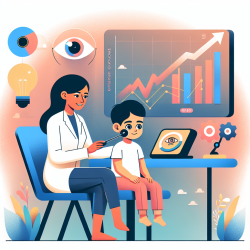Supporting Scientists in Crisis: Lessons from Ukraine
In the face of global challenges, the resilience and adaptability of the scientific community have never been more critical. The research article "Scientists without borders: lessons from Ukraine" offers invaluable insights into how the international scientific community can support researchers in crisis, particularly those affected by conflicts and disasters.
As a practitioner, there are several key takeaways from this research that can enhance your skills and understanding of global scientific collaboration. Here are some strategies and insights drawn from the lessons learned in Ukraine:
1. Embrace Global Collaboration
The scientific community's response to the crisis in Ukraine highlights the importance of global collaboration. Initiatives like #ScienceForUkraine have shown how international networks can provide essential support to displaced researchers. By fostering collaborations, you can help create opportunities for scientists in crisis to continue their work and contribute to global scientific advancements.
2. Leverage Online Platforms
Online platforms have become vital tools for connecting researchers across borders. These platforms facilitate the sharing of resources, expertise, and data, enabling scientists to collaborate in real-time. As a practitioner, utilizing these tools can help you stay connected with the global scientific community and access a wealth of knowledge and resources.
3. Promote Remote Learning and Training
Remote learning and training opportunities are crucial for supporting scientists in crisis. By offering accessible training programs and developing collaborations, you can help increase inclusion and connectivity within the scientific community. This approach not only supports affected researchers but also expedites post-crisis recovery and scientific progress.
4. Advocate for Open Science
Open science initiatives play a significant role in supporting researchers in hardship areas. By promoting open access to scientific publications and data, you can help ensure that researchers have the resources they need to continue their work. Encouraging open science practices can also foster greater collaboration and knowledge sharing across the global scientific community.
5. Support Funding and Scholarship Opportunities
Financial support is critical for researchers in crisis. By advocating for funding and scholarship opportunities, you can help provide the necessary resources for scientists to continue their work. This support can come from government agencies, non-profit organizations, and academic institutions, all of which play a vital role in sustaining scientific research during times of crisis.
Encouraging Further Research
The research article underscores the need for continued efforts to support scientists in crisis. As a practitioner, you can contribute to this cause by conducting further research on effective support mechanisms and sharing your findings with the broader scientific community. By doing so, you can help build a more resilient and inclusive global scientific community.
To read the original research paper, please follow this link: Scientists without borders: lessons from Ukraine.










